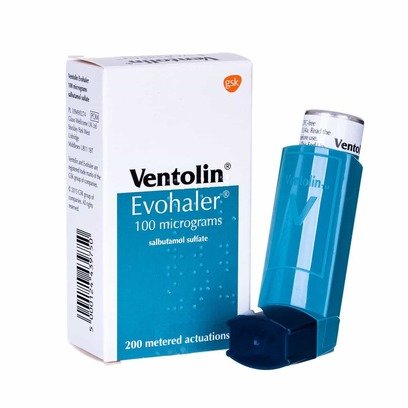Before we can issue a treatment, you’ll need to answer a short assessment. This assessment will help us recommend the right treatment for you.

Ventolin (salbutamol) | Asthma Inhaler
From £7.49
Aerochamber Plus Asthma Spacer
From £9.99
Our site uses cookies. By continuing to use our site you agree to our cookie policy.
Free delivery on orders over £50
Before we can issue a treatment, you’ll need to answer a short assessment. This assessment will help us recommend the right treatment for you.
Asthma is a long-term condition that affects your lungs. It’s important that you are regularly seen by your GP or local nurse. To help you manage your condition, Ashcroft Pharmacy can supply you with Ventolin, which is a used as a short-term reliever inhaler (also commonly referred to as your ‘blue inhaler’). Please see below and fill out the health questionnaire so we can make sure that either of these treatments are suitable for you!


Asthma is a common lung condition affecting your lungs. Asthma can cause your airways to become irritated and swollen and this can affect how well you can breathe.
The causes of asthma are not fully understood. But asthma symptoms can be made worse by many triggers such as household dust or cleaning products, pet dander or air pollutants.
There is no cure for asthma. However, there are several treatments as well as simple advice on how to manage this long term condition.
The common triggers for asthma are things you can breathe in such as:
For most people with asthma, symptoms are occasional. That means you do not experience them all the time. However, when asthma flares up, the main symptoms of asthma are:
For most people with asthma, symptoms are occasional. That means you do not experience
them all the time. However, when asthma flares up, the main symptoms of asthma are:
The common triggers for asthma are things you can breathe in such as:
However, some people may find their symptoms get worse when they are unwell, during the winter, when they exercise or that their asthma is affected by the weather.
An asthma attack is a severe bout of asthma where someone’s normal medication is not as effective.
Signs you are having an asthma attack include:
Having an asthma attack means you may need emergency asthma treatment. If you are experiencing any of the above sit upright and keep taking your blue inhaler.
If you don’t feel better within 10 puffs of your blue inhaler call 999 for ask for an ambulance.
Even if you start to feel better and don’t need to call an ambulance, it’s still important that you seek medical attention. Call your GP for an emergency same-day appointment or attend an urgent care clinic.
Please remember, if you are taking your prescribed asthma medication, your chances of having an asthma attack are greatly reduced.
The main treatment for asthma are inhalers:
Reliever inhalers deliver a dose of medication that help relax the muscles in your airways. As the muscles relax, it becomes easier to breathe.
Ventolin is a brand of reliever inhaler available on our online prescriptions service.
Reliever inhalers may be the only treatment needed for people with mild asthma. However, most people with asthma will also have a preventer inhaler.
You take preventer inhalers daily to prevent your airways from becoming inflamed. By using a preventer inhaler, you may find that you need to use your reliever inhaler less often.
Other treatments for more severe cases of asthma include tablets, injections and surgery.
For most people, asthma is a very manageable condition. You can help to manage your
asthma by:
Order Monday to Friday before 14:00pm to guarantee next day delivery